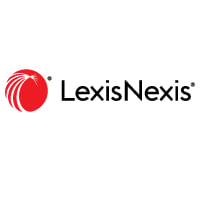

Global Tax and Legal Services Director, Risk & Quality | PwC






Sharyn Ch’ang
Global Tax and Legal Services Director, Risk & Quality | PwC
Crisis management:
During periods of business instability or crises, the focused management of legal, quality and risk issues take centre stage in concert with organisational business strategy to minimise reputational, economic and societal impact. However, these should in fact be constant themes for C-suite and enterprise attention even when times are good.
For any specific crisis, which by nature may be unpredictable, the multi-disciplinary engagement of key business leadership together with our legal and risk teams is essential for strategic alignment of communications and actions, which need to be adaptable as a crisis unfolds. Crisis management needs to be calm and systematic, and, for well-prepared organisations, a crisis is not tantamount to chaos nor commercial disaster if proactive preparation and crises responses plans and protocols have already been put in place.
In-house legal and risk teams play a central role in crisis preparation and response protocols, including during crisis simulations where we pressure-test response protocols and escalation triggers to build confidence in the process and the team charged with crisis management, and to identify any gaps or unforeseen risks. As in-house advisors we have a unique perspective when our own business is in crisis and can provide insights which even expert external counsel may not have.
It is important our legal strategy aligns with the broader business strategy as legal decisions impact organisational reputation, financial stability, and stakeholder trust. Our approach during a crisis also strikes a balance between legal risk and preserving goodwill in the context of the particular crisis, which contributes to our ability to weather the storm and enterprise resilience.
AI and automation reshaping the legal profession:
Having had the opportunity to take a deep dive into generative AI, there is no question that this technology is poised to revolutionise aspects of practice within the legal profession for in-house counsel, private practitioners and the judiciary. Deployed wisely, generative AI will enhance productivity, efficiency, quality – and innovation and competitive advantage where this is relevant.
At this current stage, generative AI has a significant impact on legal tasks, often integrating seamlessly into legal and business workflows. It serves as a powerful tool to augment daily legal work. Coupled with legal process transformation and reengineering, we will see even greater strides in legal process automation.
Practical use cases for generative AI implemented with appropriate risk mitigation for legal, ethical and governance concerns include legal document drafting, analysis and summarisation, contract review and due diligence, legal research, predictive analytics, risk assessment and client service self-help tools.
Agentic AI and new AI reasoning models will further transform legal work. Agentic AI, which can autonomously perform tasks and make decisions based on predefined criteria, has the potential to handle more complex legal work, not just tasks. New AI reasoning models, which incorporate advanced machine learning techniques, are enhancing the ability of AI to understand and apply legal principles in a manner that over time will more closely mirror human legal reasoning. This will not only improve the quality and scope of AI-generated legal output, but also guide users through the logic and legal reasoning like an experienced colleague. The innovative mind boggles at the frontiers of how AI can help the profession and society.
While the benefits of AI in the legal profession are substantial, they also raise important ethical and professional considerations. AI is not perfect, and issues including hallucination, algorithmic bias, data privacy and the potential displacement of some legal jobs must be carefully managed. Part of our role is to ensure that AI tools are used responsibly and transparently, maintaining the integrity and trust that are foundational to the legal profession.